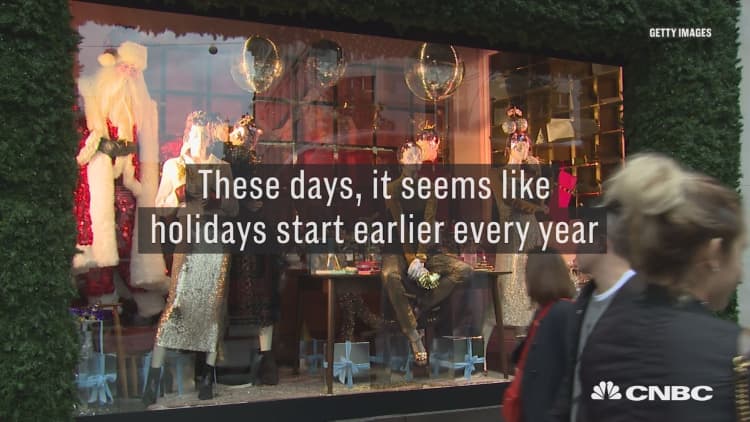For consumers looking for ways to finance their holiday shopping, deferred-interest-rate deals on credit cards might be very alluring.
Yet if you don't understand the fine print, you could be in for an unwelcome gift long after the holidays are over.
"If you don't pay the balance in full by the end of the promotional period, you'll be on the hook for interest from the very first day you put a purchase on the card," said Brian Karimzad, a researcher at CompareCards.com.
Consumers generally appear to misunderstand how deferred-interest deals work, according to a recent survey done by CompareCards.com. While 56 percent of respondents knew the definition of deferred interest, just 28 percent were able to correctly identify how these deals actually are applied to their balance. (Click on chart below to enlarge.)
Here's how it works: Say you make an initial purchase of $1,000 on a credit card that comes with a 25 percent interest rate after the initial deferred-interest promotional period of 12 months. At the end of that year, even if you have a small balance remaining, you will owe 25 percent interest on the full $1,000, or $250.
This is different from a zero-interest introductory period, when you would pay interest only on the balance remaining at the end of the deal.
"If you see 'no interest' and 'if paid in full' in the same sentence, that should be a red flag," Karimzad said.
Generally, deferred-interest credit cards come with interest rates ranging from about 25 percent to 30 percent, compared with about 16 percent on general-use credit cards, according to data from CreditCards.com.
On top of facing higher interest rates at the end of the introductory deal, paying only the monthly minimum due will likely guarantee you'll have a balance at the end.
"The minimum payments are set low enough that paying only that would not pay off the balance during the promotional period," said Chi Chi Wu, an attorney with the National Consumer Law Center.
Also, if you make additional purchases using that credit card, you could be stretching out the life of the deferred interest you owe, Wu said.
Typically, most of your payments above the minimum will be applied to other purchases before the deferred-interest balance, making it harder to pay that down.

"It can really trip you up," Wu said.
Part of the challenge is that consumers often sign up for these deals spur-of-the-moment because they seem too good to pass up.
"When you want to get low-interest or no-interest deals, shop around first before you walk into any store," Karimzad said. "If you get offered something at the point of purchase, it's usually a sign that you're not getting the best deal."
More from Your Money, Your Future
Don't hold out for that inheritance from your rich grandpa








